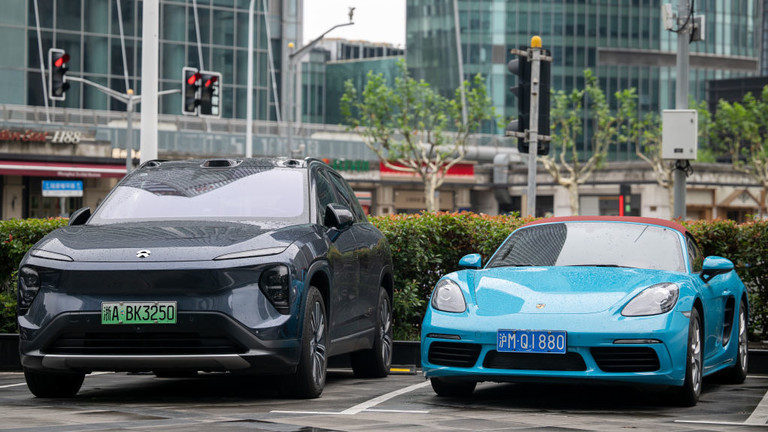Business
EU Moves Toward Potential ‘Trade War’ with Beijing

The European Union is advancing towards a potential trade war with Beijing over alleged unfair trade practices, heightening tensions between the two economic powers. Discover the latest developments and their global impact.
The European Commission’s choice to implement tariffs on battery electric vehicles (BEVs) imported from China has garnered “the necessary support” from EU member states, as mentioned in a statement on the commission’s website.
However, critics of the measures have cautioned the EU against engaging in a trade war with the Asian powerhouse.
The statement released on Friday indicated that the decision represents “another step” towards concluding the European Commission’s anti-subsidy investigation into Chinese-manufactured electric cars, which Brussels initiated in October 2023.
The new tariffs, which will be in effect for the next five years, vary from 7.8% for foreign companies like Tesla that produce their vehicles in Asian countries to 35.3% for Chinese firms reportedly non-cooperative during the investigation. These levies are in addition to the EU’s standard import duty of 10% on cars.
“The European Commission announced that its proposal to impose definitive countervailing duties on imports of battery electric vehicles (BEVs) from China has received the required support from EU Member States for tariff adoption.”
According to AFP, citing EU diplomats, ten of the 27 EU member states—France, Italy, and Poland among them—supported the imposition of tariffs. Five countries opposed this decision, including Germany and Hungary. Meanwhile, twelve nations abstained from voting; Spain and Sweden were included in this group.
READ ALSO: European Union discloses a plan to sanction Russians who are no longer alive
Brussels contends that the tariffs are essential to shield European car manufacturers from unfair competition, asserting that Chinese automakers receive support through state subsidies.
Germany, the European Union’s largest economy and a leading car manufacturer, has expressed strong opposition to the tariffs.
“The Commission should avoid triggering a trade war with China. A negotiated solution is necessary,” stated German Finance Minister Christian Lindner on X, previously known as Twitter.
Hungarian Prime Minister Viktor Orban cautioned prior to the vote that the EU was on a path toward an “economic cold war” with China.
The EU also stated that it is continuing to collaborate with Beijing to find “an alternative solution.” The new tariffs are anticipated to take effect at the end of October.
In August, the Chinese government announced that it had lodged a complaint with the World Trade Organization regarding certain tariffs, asserting they breach WTO regulations and hinder international collaboration on climate change. Additionally, Beijing has initiated investigations into European imports of brandy, dairy products, and pork.
